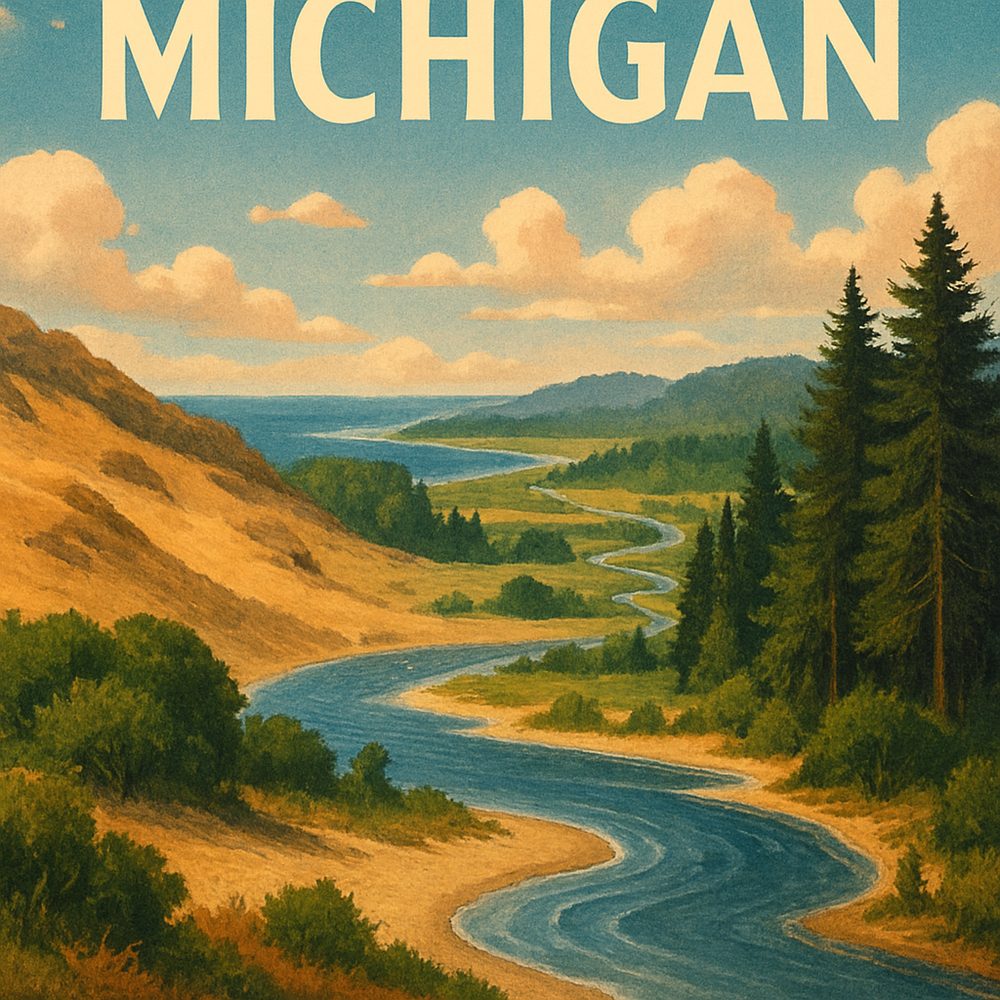Indigenous Culture and Heritage Sites to Explore in Michigan

Nestled along the southern shore of Lake Michigan, the city of Benton Harbor offers a gateway to the rich heritage of the Potawatomi people. Just a short drive west of Kalamazoo, the potawatomi Trail winds through the region’s mix of wetlands and woodlands, inviting visitors to hike sections that trace ancient indigenous pathways. The trail’s interpretive signs provide insights into the Potawatomi’s relationship with the land, their use of native plants, and traditional hunting practices. Exploring this trail in the spring, when wildflowers bloom and migratory birds fill the air, adds a vivid sensory layer to the experience, connecting travelers to the rhythms of nature that shaped indigenous life.
Farther north, near Marquette on the Upper Peninsula, the Presque Isle Park stands on a rocky peninsula jutting into Lake Superior. This natural area is steeped in Ojibwe history, serving historically as a gathering place and fishing site. Visitors can walk the park’s paved trails to points like the Mineral Springs Overlook, where panoramic views of the lake and city unfold. The park’s unique geology, with its volcanic rocks and ancient formations, mirrors the deep time the Ojibwe have inhabited the region. Wintertime in Presque Isle, with snow blanketing the landscape, offers a quiet, reflective atmosphere akin to the Ojibwe’s reverence for the land’s seasonal cycles.
In the heart of Detroit, the Charles H. Wright Museum of African American History includes exhibits dedicated to the intersections of indigenous and African American histories. Located just north of downtown, the museum features artifacts and stories highlighting the Native American tribes who lived and traded in the Detroit River area. The “Spirit of Detroit” gallery explores indigenous art alongside African American cultural contributions, creating a powerful dialogue of resilience and identity. Visiting on a weekend afternoon allows for guided tours that deepen understanding of Detroit’s layered past through firsthand accounts and community narratives.
Heading west to Traverse City, the Dennos Museum Center on the campus of Northwestern Michigan College hosts an impressive collection of Native American art, including intricate beadwork, pottery, and contemporary pieces by Anishinaabe artists. This lakeside city, about a four-hour drive northwest of Detroit, feels like a portal into the Great Lakes indigenous cultures. The museum’s rotating exhibits often highlight seasonal themes tied to nature, making a late summer visit rewarding when the surrounding cherry orchards are in full bloom. The Dennos’ blend of traditional and modern art forms celebrates the living culture of Michigan’s tribes, inviting visitors to witness ongoing creativity rather than a static past.
On the shores of Lake Michigan near Charlevoix, the Old Indian Trail offers a glimpse into the travel routes used by the Odawa people for centuries. About two and a half hours northwest of Detroit, this historic trail runs through the scenic wilderness of the Beaver Island State Park. Hiking the trail in autumn reveals a tapestry of colors that echo the indigenous use of local plants for dyes and medicines. Interpretive panels along the path recount stories of trade, seasonal migration, and spiritual practices. What makes this trail special is its preservation within a state park, allowing visitors to engage with history in a natural setting without the intrusions of modern development.
The Mackinac Island State Park, between Michigan’s Upper and Lower Peninsulas, is a storied place where the Ojibwe, Odawa, and Potawatomi peoples converged for hunting, fishing, and diplomacy. A ferry ride from Mackinaw City brings travelers to this island frozen in time, where motor vehicles are banned and horse-drawn carriages share the streets. Exploring the park’s Fort Holmes Trail leads to historic military installations and overlooks the Straits of Mackinac, blending indigenous and colonial histories. Summer visits allow you to witness traditional storytelling events and craft demonstrations that celebrate native lifeways, making the island a living classroom for cultural exchange.
In southeast Michigan, near Ann Arbor, the University of Michigan Museum of Anthropological Archaeology houses numerous artifacts from Michigan’s indigenous peoples, including tools, ceramics, and clothing from various tribal nations. The museum, a short drive from the city center, offers an intimate look at the craftsmanship and daily life of tribes such as the Potawatomi and Ojibwe. Special exhibits often feature the Great Lakes region’s archaeological sites, making it a great stop for those seeking a deeper academic perspective. Visiting during the cooler months is ideal for museum exploration, when indoor exhibits provide a warm refuge from the winter chill while fostering reflection on Michigan’s earliest inhabitants.
Each of these places, from urban museums to remote parks, invites travelers to engage with Michigan’s indigenous heritage in tangible, meaningful ways. By walking ancient trails, viewing centuries-old art, or listening to stories beneath northern stars, visitors connect with a cultural landscape that is vibrant, evolving, and deeply rooted in the land. Whether on a spring morning in Benton Harbor or a crisp fall afternoon on Beaver Island, Michigan’s indigenous sites offer powerful windows into history and living traditions.